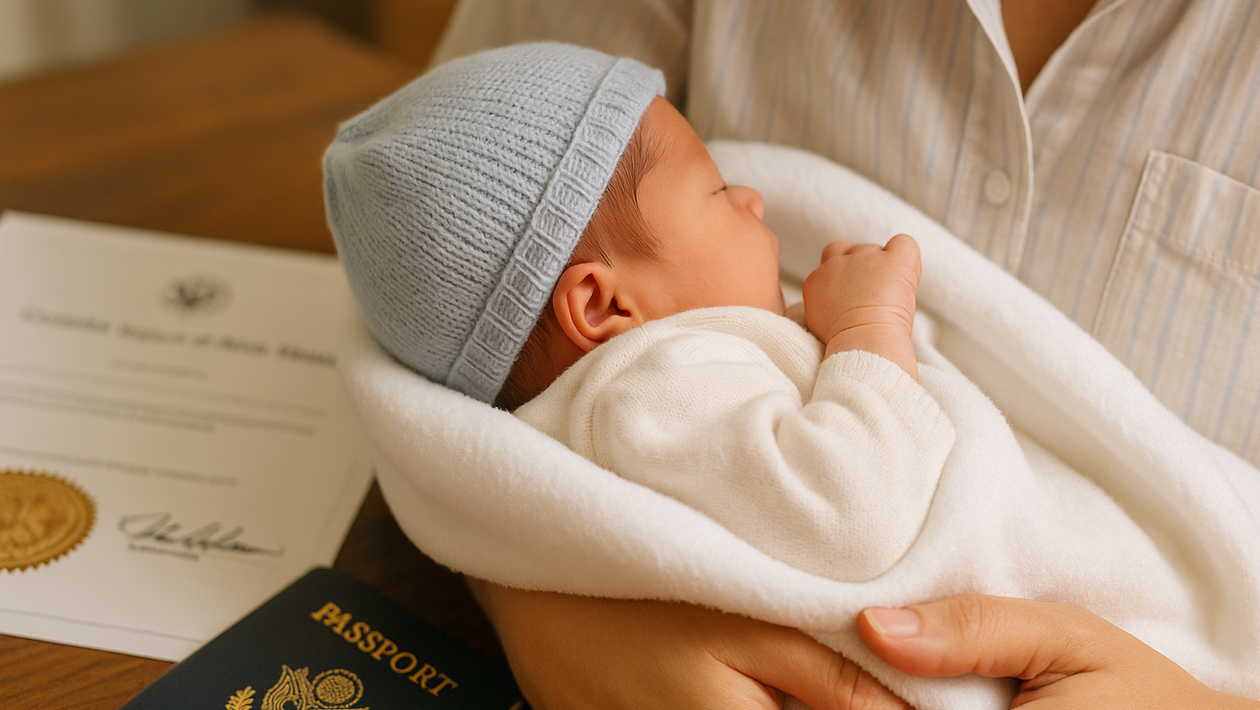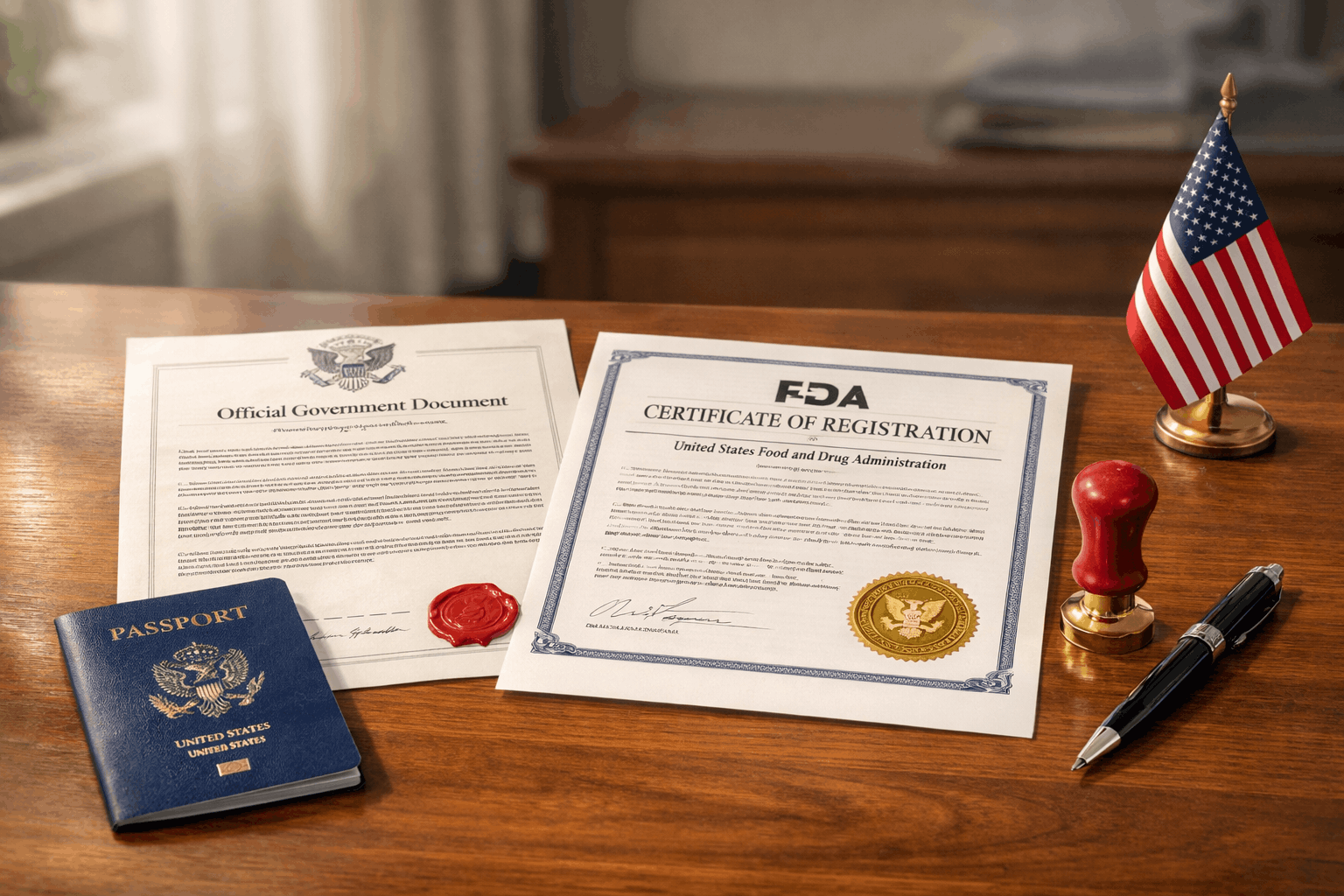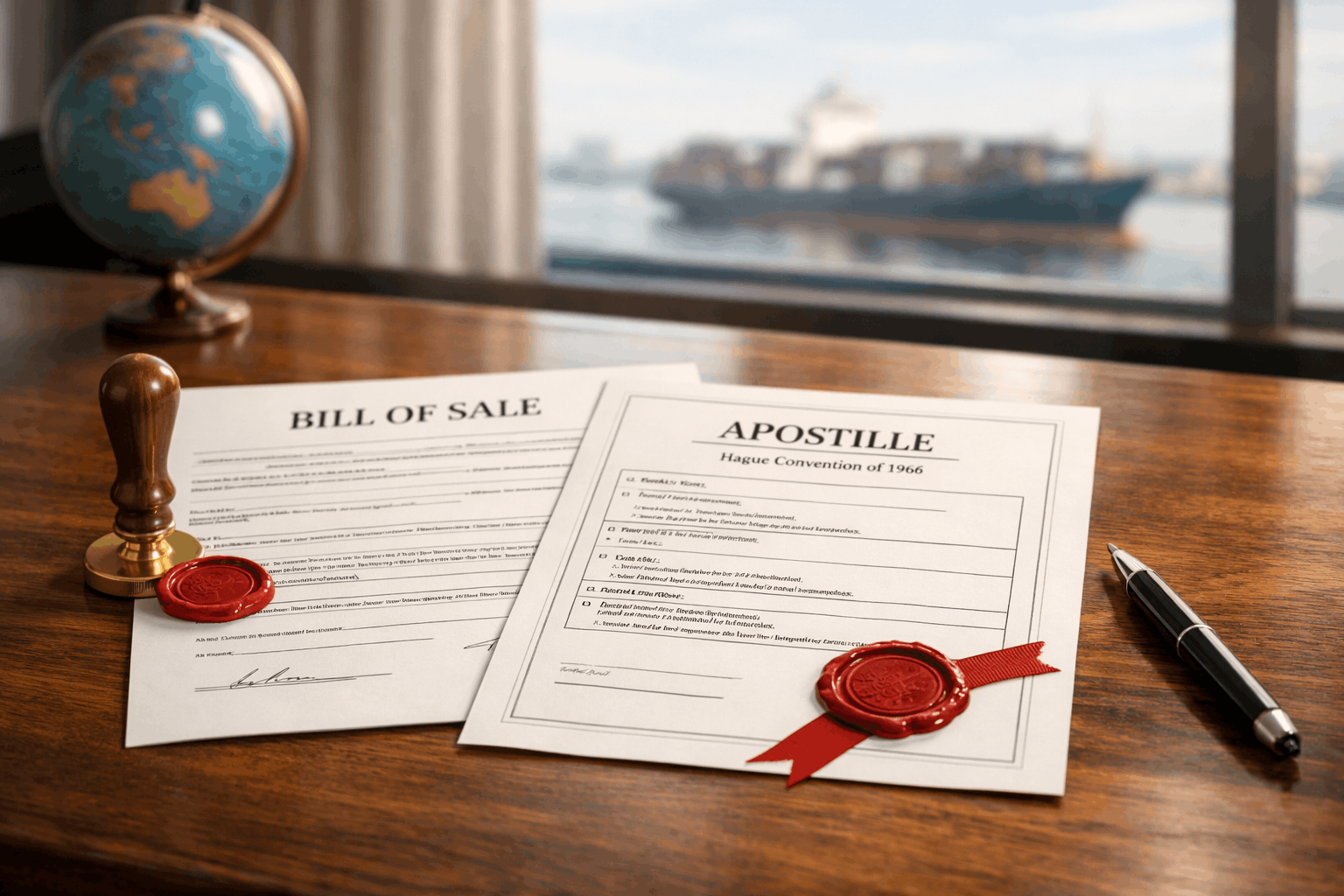
Consular Report of Birth Abroad (CRBA): What It Is and Why Apostille Certification Matters for International Use
Welcoming a child abroad is a beautiful milestone, yet you should keep informed of the associated paperwork. You likely have a consulate birth certificate, officially named a Consular Report of Birth Abroad (CRBA), which is crucial for proving citizenship. You may also need an apostille if it’s intended for international use. Understanding the CRBA apostille process is essential to ensuring acceptance abroad. Let’s reveal all you must know today!
What Is a Consular Report of Birth Abroad (CRBA)
A consulate birth certificate simply states that your child is a U.S. citizen, but cannot obtain a regular birth certificate due to being born outside the country. However, not every overseas birth qualifies for a CRBA. So, in this section, we’ll discuss what it is, who’s eligible, and how to get a birth abroad certificate.
Definition and Purpose
A CRBA (Form FS-240) is a U.S. DOS certification of report of birth abroad issued through a U.S. embassy or consulate in foreign countries. It’s considered equivalent to a domestic state-issued birth certificate, with the primary purposes of:
- Establishing U.S. citizenship for American children born overseas.
- Serving as birth abroad citizenship proof for legal documentation.
In short, instead of getting a traditional birth certificate, you’ll obtain a CRBA for foreign-born American children as proof of citizenship.
Who Is Eligible and When to Apply
At least one of the parents must be a U.S. citizen and fulfill specific residency requirements up to the child’s birth to qualify for a CRBA. The application must be filed before the child’s 18th birthday, ideally within a few months after birth, to avoid issues and delays during other processes, such as applying for a passport or a Social Security number.
Application Process Overview
To obtain a CRBA, parents first need to fill out Form DS-2029 to express their wish through the application. Include supporting documents with the application, such as parents’ IDs, evidence of U.S. physical presence, the child’s foreign birth certificate, and other official records if applicable. After that, schedule an appointment with the embassy or consulate and prepare to answer a few questions during the interview.
Why CRBA Is Important Beyond Travel
More than a travel document or a record needed to obtain a U.S. passport, a CRBA offers lifelong values that go beyond international trips. Whether completing school enrollment or settling an inheritance, this piece of paper acts as a safeguard for your child’s birthright, in the U.S. or foreign countries alike.
Proof of Citizenship for Official Use
While foreign birth certificates might not be recognized by U.S. institutions, a CRBA remains valid proof of citizenship status throughout a person’s lifetime. Think of applying for federal benefits, enrolling in public colleges, claiming property rights, or qualifying for government roles. That’s why smart parents act fast to secure this document early and prevent future citizenship disputes.
Distinction from a Passport or ID
It’s also worth mentioning that a birth abroad certificate is different from a passport or ID. While passports may prove citizenship, they’re temporary and must be renewed every ten years. IDs confirm identity rather than citizenship. A CRBA, on the other hand, acts as a foundational record of birth and parentage that never expires, yet it isn’t considered an identity document.
Why Apostille Matters for CRBA
An apostille for a Consular Report of Birth Abroad validates the authenticity of the record for legal use in Hague Convention countries. The apostille process ensures the CRBA receives the recognition it deserves in overseas proceedings, such as dual citizenship, residency, or school enrollment. For non-Hague countries, you’ll need to go through embassy legalization instead—an extra step seeking final approval from the receiving country’s embassy.
Steps to Obtain an Apostille for a CRBA
Now, it’s time to make your CRBA valid internationally. This part walks you through the key steps to obtain an apostille for a consulate birth certificate. Whether you decide to do it yourself or rely on expert services, understanding the process helps prevent mistakes and save time. Here’s what to do:
Getting a New or Certified Copy of CRBA
To request an apostille, you first need to get a certified copy of the CRBA or request a new one at the local U.S. embassy or consulate. You can search for more details about this on the official website of the relevant embassy or consulate. The process entails filling out the application form, providing supplemental documents, and attending an interview, as mentioned above.
Submitting to the U.S. Department of State for an Apostille
Once you have prepared the required documents, submit your request to the DOS, Office of Authentications. For mail-in submissions, the apostille package should include:
- A completed apostille request form
- All required documents
- A self-addressed return envelope
- Correct payment for processing fees
Remember to double-check the destination country’s specific requirements for apostilles and ensure you follow them properly.
Optional Service Providers and Considerations
If you need the apostille asap while abroad, it’s possible to have a friend or family member handle the process on your behalf or hire the experts to enjoy expedited services. Reputable service providers can streamline your apostille process, mitigating errors and cutting corners for critical international documentation.
Using Apostilled CRBA Abroad
As you receive the apostille, your CRBA is ready for international use. It can unlock many doors, but only if you know when and how to use the document. We’ll cover common scenarios where you need it, translation needs, and potential mistakes to help you sidestep delays and rejections.
Common Scenarios Where an Apostille Is Required
Expat families typically use their apostilled CRBA for school enrollment, passport issuance, dual-citizenship application, and inheritance claims abroad. The apostille offers assurance for foreign authorities, like academic institutions or courts, that the child’s report of birth is valid and authentic.
Translation and Authentication Requirements
Some countries might require you to translate the birth record into their official language. If this is the case, make sure you use certified translators who possess appropriate linguistic skills and expertise in translating CRBA. Complete the certified translation before sending your apostille request.
Potential Pitfalls and How to Prevent Them
Before using CRBA abroad, familiarize yourself with a few possible errors you should be aware of. Below is a list of these errors:
- Incomplete fields on the application form.
- Use uncertified translations.
- Overlook the destination country’s rules.
- Fail to include an accurate payment in the application.
To avoid issues, review your request form carefully, work with certified translators, consult with foreign authorities on updated apostille guidelines, and provide the exact payment with your request.
Timeline and Costs
The cost for obtaining a federal apostille is $20 per document. You should also reckon on other fees, such as courier and getting a new copy of the CRBA. The processing times of apostilles range from 2-3 weeks for walk-ins and more than 5 weeks for mailing. You can speed up the timeline by using private services.
CRBA Eliminates Obstacles
Requesting an apostille for your child’s Consular Report of Birth Abroad is vital to ensuring their American citizenship is recognized overseas. By understanding the CRBA’s use and purposes, you’ll better prepare your paperwork for smooth international acceptance. Keep our key steps for obtaining an apostille in mind and don’t let bureaucratic hassle hold back your child’s future!
FAQ
How does a CRBA differ from a U.S. birth certificate?
A CRBA is issued by the DOS for American children born abroad, while a birth certificate is a state-issued document for those born domestically. Both verify citizenship, but only a traditional birth certificate may act as an identity document.
Can you travel with a CRBA alone?
No. You’ll need a U.S. passport to travel. A CRBA can be used during the passport application process as proof of citizenship.
Does an apostille have an expiration date?
No, typically it doesn’t expire. However, some countries may have time-sensitive requirements, so verify with local authorities to ensure your apostille works.
How long after issuance can you apostille a CRBA?
You can apostille a CRBA at any time convenient for you, but fresh copies reduce the risk of rejection or further verification.
Which countries require full legalization instead of an apostille?
Non-Hague Convention countries, such as the UAE or China, demand full legalization for foreign documents.
Do I need translations of both the CRBA and the apostille?
Usually, just the CRBA, but certain jurisdictions might require you to translate both. Verify translation requirements with the receiving authorities.





